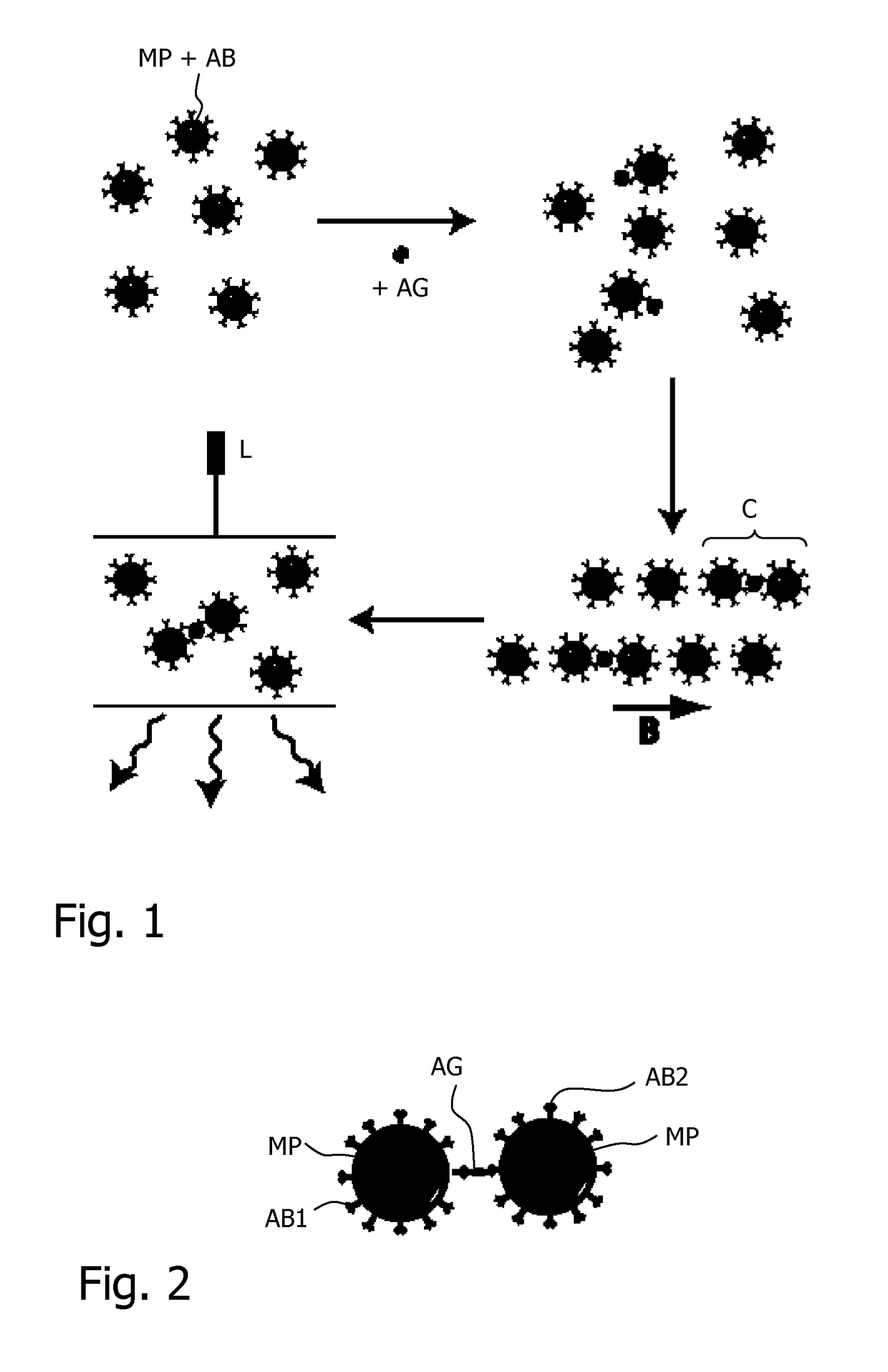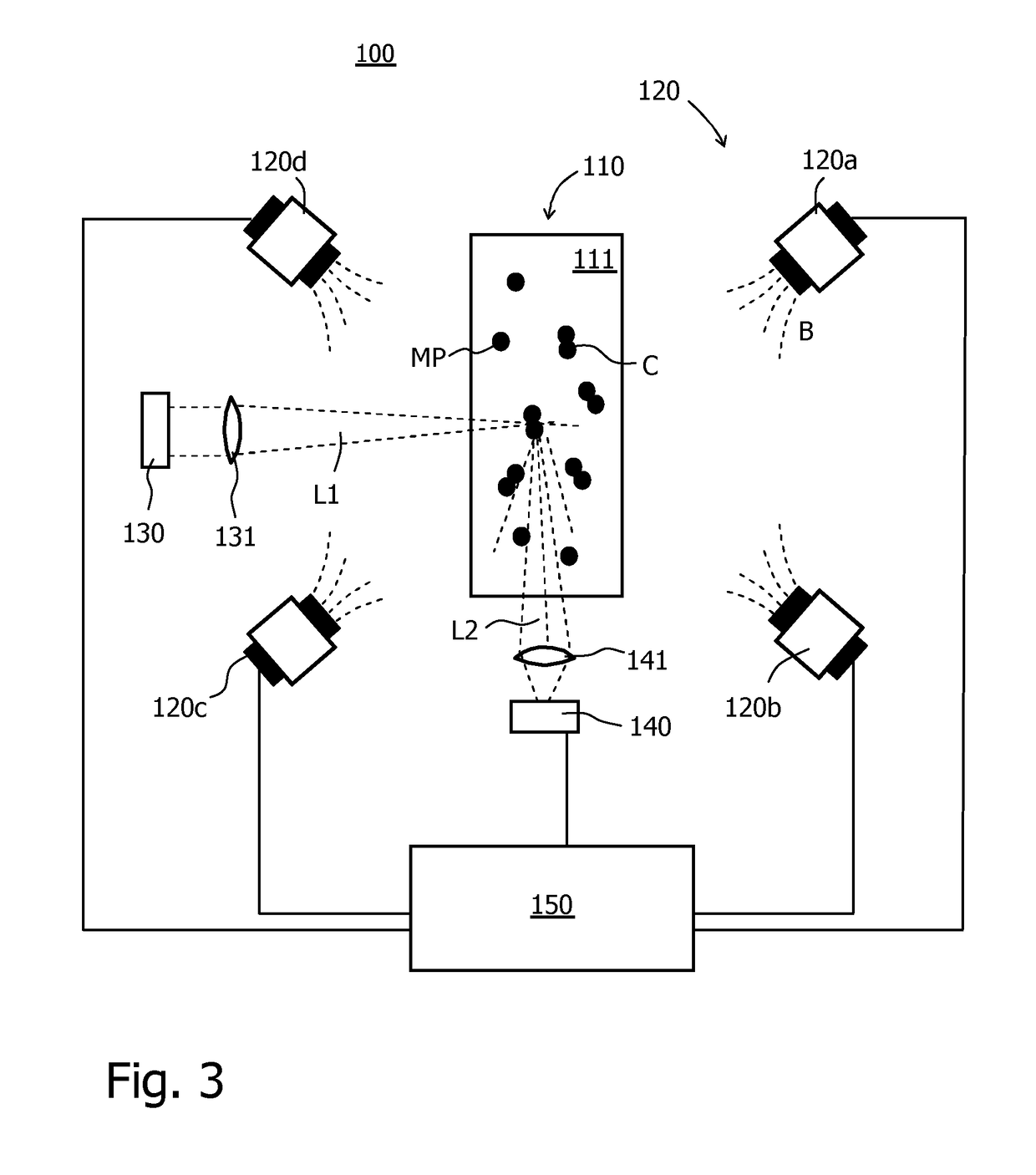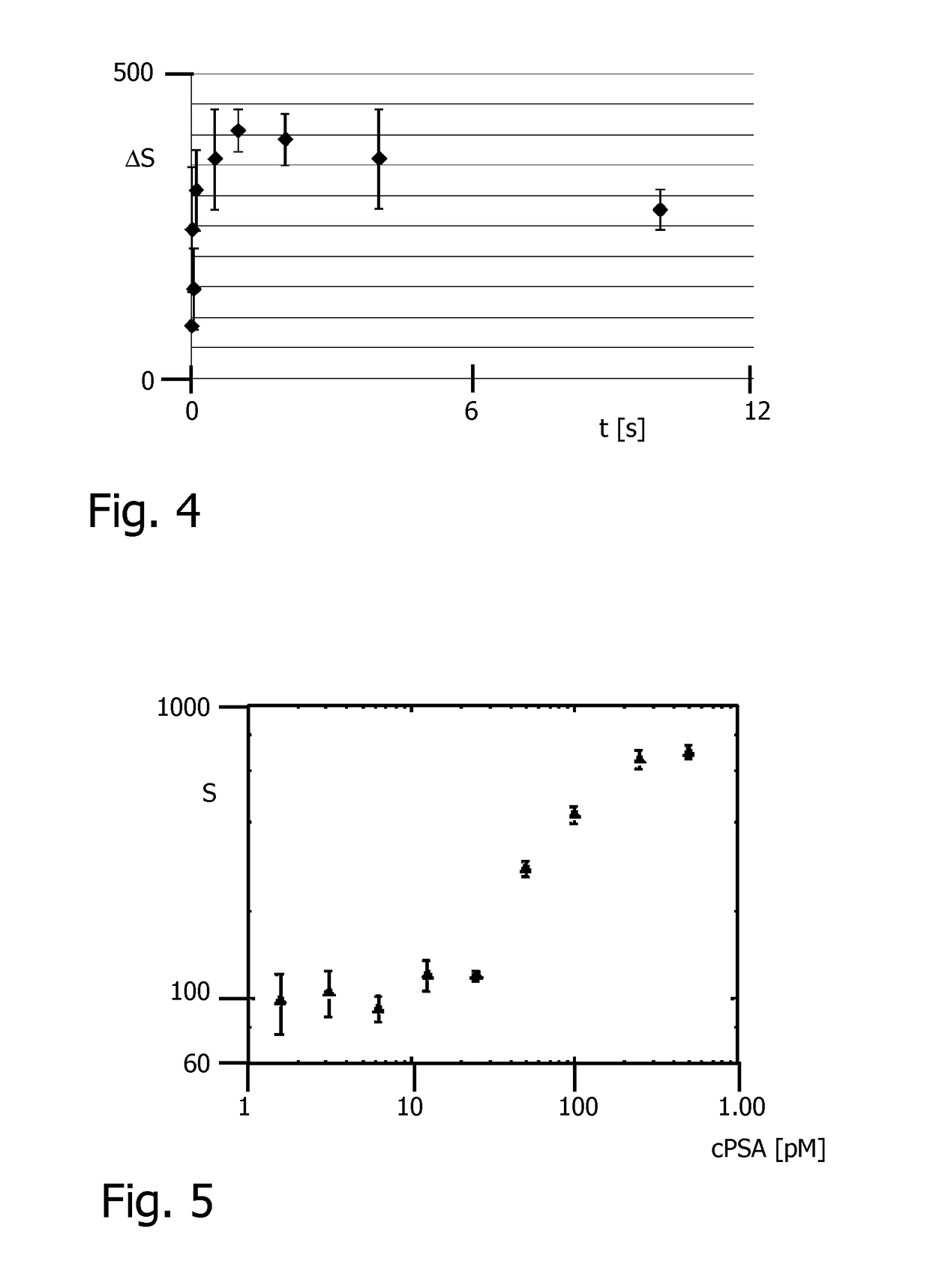Detection of clusters of magnetic particles
a technology of magnetic particles and sensors, applied in the direction of instruments, material magnetic variables, material analysis, etc., can solve the problems of complex description measurements and difficult realization, and achieve the effect of reliable detection and simple and robust procedur
- Summary
- Abstract
- Description
- Claims
- Application Information
AI Technical Summary
Benefits of technology
Problems solved by technology
Method used
Image
Examples
Embodiment Construction
[0034]In recent years, an increased demand for more pervasive and effective healthcare systems is affecting the world of in vitro diagnostics, putting the stress on the achievement of effective point-of-care solutions. The achievement of such goal is particularly demanding due to the requisites of point-of-care diagnosis: since the tests need to be performed at the patient location, they must be rapid, sensitive, quantitative and accurate. Moreover the platform on which the test is performed needs to be portable and easy-to-use.
[0035]Magnetic cluster assays provide a volumetric and surface-free architecture and therefore they are intrinsically rapid and cost-effective. FIG. 1 schematically sketches four consecutive steps of a typical magnetic cluster assay based on magnetic confinement of the magnetic nanoparticles MP to enable effective cluster formation.
[0036]As a first step (FIG. 1 top left), the magnetic particles MP coated with antibodies are provided. In a second step (FIG. 1 ...
PUM
| Property | Measurement | Unit |
|---|---|---|
| size | aaaaa | aaaaa |
| size | aaaaa | aaaaa |
| diameter | aaaaa | aaaaa |
Abstract
Description
Claims
Application Information
 Login to View More
Login to View More - R&D
- Intellectual Property
- Life Sciences
- Materials
- Tech Scout
- Unparalleled Data Quality
- Higher Quality Content
- 60% Fewer Hallucinations
Browse by: Latest US Patents, China's latest patents, Technical Efficacy Thesaurus, Application Domain, Technology Topic, Popular Technical Reports.
© 2025 PatSnap. All rights reserved.Legal|Privacy policy|Modern Slavery Act Transparency Statement|Sitemap|About US| Contact US: help@patsnap.com



